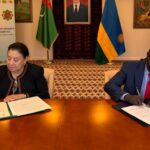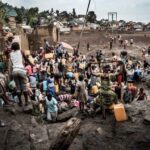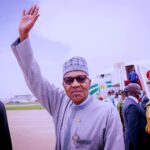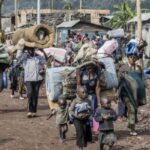Imagine a nation blessed with an abundance of gold, diamonds, and cobalt, yet cursed with persistent poverty, crumbling infrastructure and a disillusioned populace.
This is the paradox of the Democratic Republic of Congo (DRC), a land rich in resources but suffering under the weight of failed leadership. For decades, the DRC has been a textbook example of how corruption and misgovernance can destroy potential and invite external interference.
Under the leadership of President Félix Tshisekedi since 2019, the situation has not improved meaningfully. The eastern regions remain engulfed in conflict, and millions of Congolese have been displaced.
Schools collapse from neglect, hospitals run out of medicine, and basic services are in disrepair.
The country’s immense mineral wealth, which should be a source of prosperity, continues to be siphoned off by foreign corporations and corrupt officials, a betrayal that echoes the colonial exploitation of the past.
This exploitation is no longer carried out by foreign armies but by economic and political puppeteering.
Recent developments in the U.S. Congress, particularly Resolution H.Res.559, which calls for peace in the DRC and demands that President Tshisekedi honor term limits, underscore just how deeply the country’s sovereignty has eroded.
That a government over 11,000 kilometers away feels justified in legislating the affairs of an African nation should alarm all of us.

The shadow of colonialism still looms
What’s happening in the DRC is not just a national tragedy, it is a continental warning. The continued meddling by foreign powers in African affairs reflects a disturbing truth: colonialism never truly ended, it just evolved.
Today’s colonial masters don’t wear uniforms or carry flags. They operate through economic leverage, exploitative trade agreements, proxy wars, and their influence over weak or compromised African leaders.
This situation persists because many of our leaders, including those in the DRC, have surrendered their people’s future in exchange for personal power and wealth.
When national governance is reduced to looting public coffers and selling off national assets, it creates a vacuum, one eagerly filled by external forces.
The moment African leaders fail to defend their countries’ interests, foreign powers move in, under the guise of assistance, peacekeeping, or diplomacy.
President Tshisekedi would do well to listen. The U.S. Congress has made it clear: a third term would violate the constitution and deepen the country’s political crisis. The world is watching. So is the youth of Africa.
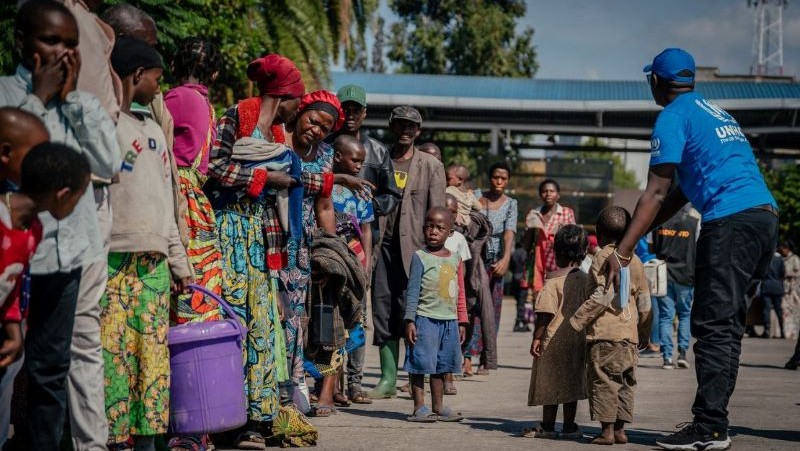
A generation at the crossroads
To the youth of Africa, this is your defining moment. You are the largest and most connected generation in history. You’ve grown up with access to technology, global knowledge, and the power to organize and amplify your voices.
But for too long, many young Africans have turned their backs on their homelands, choosing to flee toward perceived safety and opportunity in Europe, America, or elsewhere. That instinct is understandable, but ultimately self-defeating.
If you run, who will stay to fix what’s broken? Who will rebuild the DRC, Nigeria, South Sudan, or Zimbabwe? Who will challenge the aging leaders clinging to power? Who will protect the minerals, forests, and rivers of our land from those who see Africa only as a place to extract profit?
The future of Africa lies in your hands, not in foreign aid, not in resolutions passed overseas, and certainly not in recycled leadership.
Return home if you are abroad. If you are still here, stay and rise. Build businesses. Start movements. Mobilize for change. Support leaders who prioritize service over self-enrichment. Create new systems rooted in justice, innovation, and accountability.

Taking back what is ours
The DRC’s tragedy is not an isolated one. It is a mirror held up to the entire continent. The question is no longer whether African youth are ready, the question is whether you are willing.
Will you reclaim the mineral wealth that rightfully belongs to the people? Will you stand up to corrupt leadership and refuse to be silenced?
Will you demand a future where African nations speak for themselves on the global stage, not through the mouths of foreign diplomats but through young, visionary, homegrown leaders?
Use social media not for distraction, but for activism. Use your education not to escape the continent, but to transform it. Learn the systems of power so you can dismantle and rebuild them.
Africa has waited long enough. The chains of colonialism, old and new, can be broken, but not by the generation that came before. They must be broken by you.

The time is now
The Democratic Republic of Congo can be more than a cautionary tale; it can be the turning point in Africa’s modern story. But that will require courage, sacrifice, and unity from its youth.
Picture a DRC where mineral wealth funds development, not conflict. Picture hospitals that heal, schools that educate, and roads that connect. This dream is not far-fetched; it is within reach, but only if young Africans refuse to settle for anything less.
President Tshisekedi may or may not step aside. Foreign nations may or may not continue to interfere. But regardless of their decisions, African youth must rise.
Do not wait for permission. Do not wait for perfect conditions. Your continent is calling. Will you answer?
